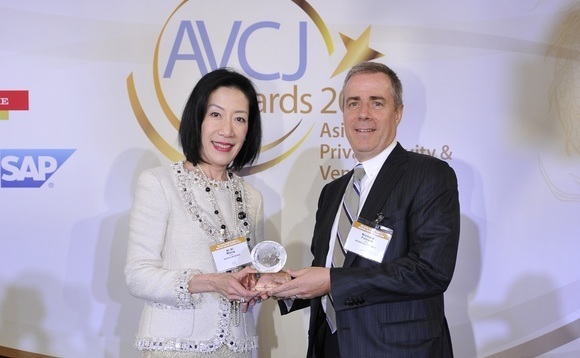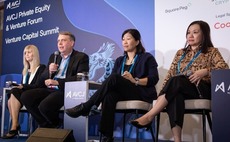
AVCJ Awards: Exit of the Year - Mid Cap: United Cinemas

United Cinemas was struggling in the face of macro headwinds and low consumer confidence, but Advantage Partners’ saw the bigger picture and delivered blockbuster returns
Advantage Partners' investment in United Cinemas came at a difficult time for Japan's movie theater industry. In 2011 much of the country was still feeling the bite of the global financial crisis and the added impact of the Tohoku earthquake prompted consumers to tighten their belts further. With trips to the movies among the first items dropped from the household budget, companies like United - which had been in negotiations with Advantage at the time - were among those worst hit.
"Nobody was really sure what that it would mean for the overall industry and the economy, but for United it meant a downturn in performance for 2011," says Josh Porter managing director at the PE firm. "People didn't feel comfortable going out so much, particularity for things like movies, and were reluctant to spend money."
Advantage, which had been targeting the industry for some time before settling on United, successfully completed its acquisition in March 2012. It paid JPY3.9 billion (then $48 million), including JPY2.6 billion in debt, to buy the business from Sumitomo Corp. Clearly, United's earnings had suffered so the first task was to get the company's balance sheet back on track while consumer demand recovered.
"The number of screens grew 40% between 2002 and 2010, so there was an oversupply situation," explains Takeshi Sasaki, the principal with Advantage who lead the transaction. "Like other cinema chains, United built its own theaters, so it was a very capital intensive business and company had accumulated a lot of debt. The financial situation wasn't good."
Recalibration process
The turnaround strategy comprised around two thirds cost management and one third revenue enhancement. The first part involved renegotiating debt with former owner Sumitomo, focusing on operational improvements, changing staff levels and managing shifts to match the needs of each theater.
The other big change was the way United would manage its assets. The company switched to an outsourcing model whereby there were no purchases of real estate or capital equipment like seating and projectors. This allowed management to concentrate on hiring the best staff, running an efficient box office and coordinating concessions.
However, in order to respond to rebounding consumer demand, United also needed to expand its footprint and upgrade its technology. At the time of the investment the whole industry was transferring from analog to digital, so within the first six months all the old projectors in United's theaters were replaced. This eliminated the need for projectionists, delivering lower costs.
The next step was expansion. "United was the fourth-largest chain in what is really a pretty fragmented industry," says Porter. "So mid-way through the investment we acquired its competitor Kadokawa Cineplex, which brought the United to number three position."
The acquisition of Kadokawa - the eight-biggest player in the market - in 2013 expanded United's footprint from 222 screens across 21 theaters to 331 screens across 36 cinemas. This also put the company ahead of rival Movix.
At the same time, Advantage addressed top line earnings by focusing on the most lucrative part of any movie theater business: the concession stand. (Most of the ticket sales revenue filters back to the movie producers.)
The private equity firm encouraged competition between movie theaters, with rewards for those that maximized concession sales. There was particular emphasis on driving popcorn sales, the highest-margin product on offer. This involved staff being more proactive - providing free samples, making recommendations, and announcing special menu items. The menu was also simplified.
"United Cinemas used to have a variety of menus and they tried to sell something new every season but it didn't contribute to revenue enhancement," says Sasaki. "So we eliminated the menu and instead we focused on selling a variety of popcorn, introducing various flavors like caramel and banana, strawberry and chocolate."
Mission accomplished
These improvements, combined with a return of those movie-goers who had stayed away, saw EBIDTA grown from around JPY200 million at the time of investment to JPY1.3 billion by year two, and JPY2.1 billion for the 12 months ended June. Including the Kadokawa acquisition, revenue grew 30% during the ownership period, reaching JPY19.5 billion in 2014 financial year.
More recent figures have benefited from a boom in ticket sales driven by some of this year's biggest box-office hits, led by Disney's "Frozen."
"‘Frozen' was a big success in Japan but it was released here at the end of the fiscal year so most of the contribution to earnings came through the following quarter," Sasaki explans. "It provided an uplift this year on a pro forma basis but the buyer also acknowledged it was a one-time big hit."
The buyer was Lawson HMV Entertainment, a unit of listed convenience store giant Lawson, which had agreed to pay JPY14 billion for United, generating a 9.9x money multiple for Advantage. The sale actually came ahead of schedule but because the company was showing strong performance - and the PE firm had met the goals it set out to achieve - the timing turned out to be ideal.
"We tested the market to see what the strong interest was, recognized it was good, and so we ran a traditional sale process," says Porter. "We ended up with a buyer that is a really good fit for the business and we went forward with it."
Latest News
Asian GPs slow implementation of ESG policies - survey
Asia-based private equity firms are assigning more dedicated resources to environment, social, and governance (ESG) programmes, but policy changes have slowed in the past 12 months, in part due to concerns raised internally and by LPs, according to a...
Singapore fintech start-up LXA gets $10m seed round
New Enterprise Associates (NEA) has led a USD 10m seed round for Singapore’s LXA, a financial technology start-up launched by a former Asia senior executive at The Blackstone Group.
India's InCred announces $60m round, claims unicorn status
Indian non-bank lender InCred Financial Services said it has received INR 5bn (USD 60m) at a valuation of at least USD 1bn from unnamed investors including “a global private equity fund.”
Insight leads $50m round for Australia's Roller
Insight Partners has led a USD 50m round for Australia’s Roller, a venue management software provider specializing in family fun parks.






